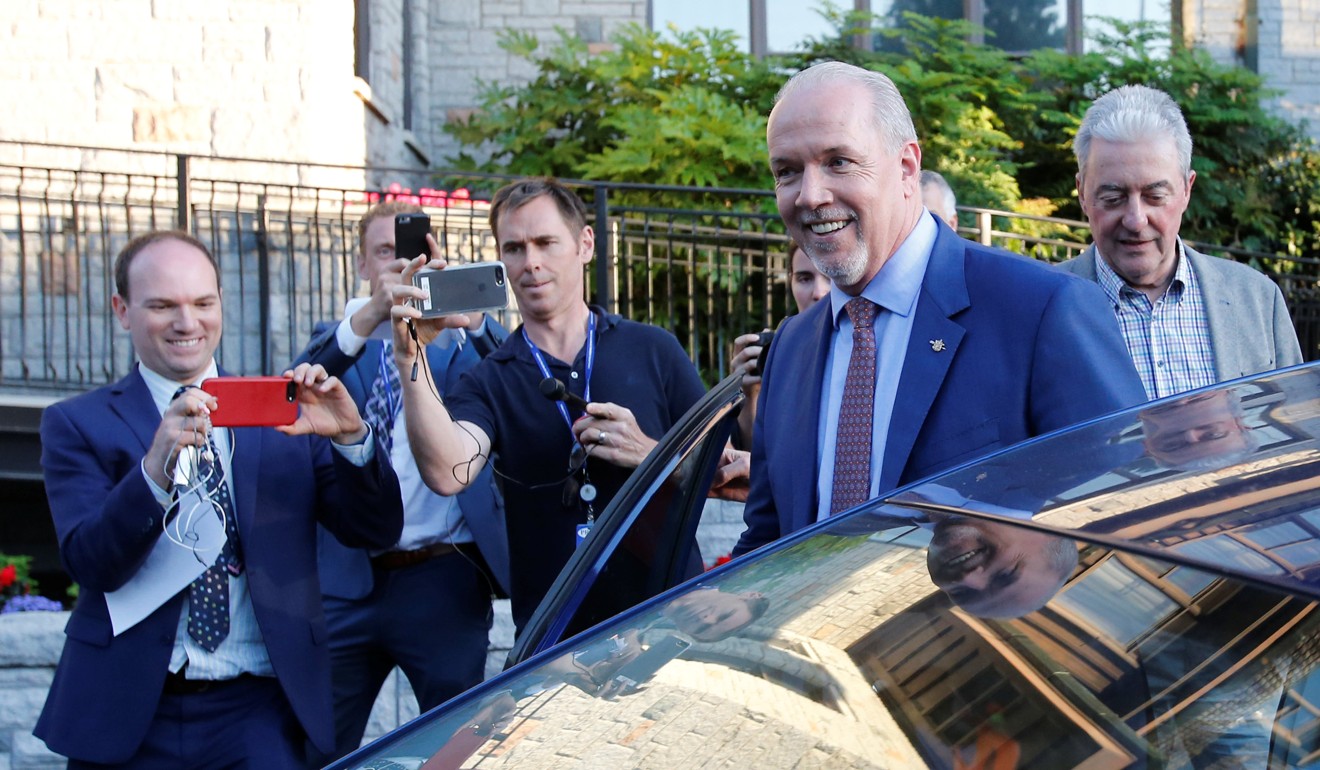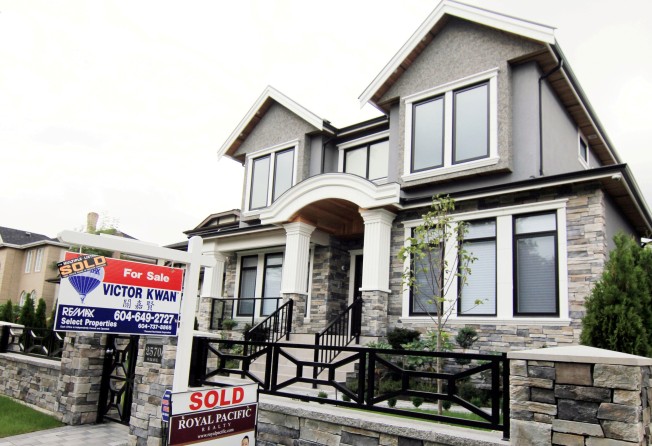
Vancouver’s hot property market gets tougher for wealthy Chinese as foreign buyer tax is raised to 20pc
Foreign buyers, mainly from China, have been blamed for Vancouver’s red-hot property market, where the gap between home values and incomes has widened rapidly in the last five years

Vancouver, one of the hottest housing markets in North America, is getting a little tougher for wealthy Chinese buyers.
British Columbia Finance Minister Carole James announced measures targeting foreign buyers and speculators in the first budget since her government was elected on a pledge to make housing more affordable for residents of Canada’s Pacific Coast province.
Starting Wednesday, foreigners will pay the province a 20 per cent tax on top of the listing value, up from 15 per cent now, and a levy on property speculators will be introduced later this year, according to budget documents released Tuesday.
The tax echoes Hong Kong’s 15 per cent tax on residential property purchases by non-permanent-residents and corporations imposed in October 2012, a measure designed to stem a flood of mainland Chinese money into the city’s housing market.
The British Columbia government will also crack down on the condo pre-sale market and beneficial ownership to ensure that property flippers, offshore trusts and hidden investors are paying taxes on gains.

Premier John Horgan faces formidable demands after taking power in a fiercely contested election last July.
His New Democratic Party made expensive promises to topple the Liberals, whose 16-year-rule brought the fastest growth in Canada, but also surging property while incomes stagnated.
Public outrage has surged amid perceptions that global capital seeking a stable sanctuary, especially from China, is driving double-digit gains in Vancouver, the country’s most expensive property market.
“The expectations that we will do everything in our first budget are huge,” James told reporters in the capital Victoria.
“Our goal is fairness – fairness for the people who live here, who work here and pay their taxes here.”
James said a raft of new measures are intended to “moderate” the surge in housing prices, which she said had emerged as one of the top concerns of both residents and businesses struggling to recruit workers due to the high cost of living.
The new speculator tax takes effect this fall and would apply to foreign and domestic investors who don’t pay income tax in the province.
Our goal is fairness – fairness for the people who live here, who work here and pay their taxes here
It will start at 0.5 per cent of the property’s assessed value in 2018 and rise to 2 per cent thereafter. Primary residences and homes leased as long-term rentals will be exempt.
“B.C.’s real estate market should not be used as a stock market. It should be used to provide safe and secure homes,” said James.
“That’s why we’re cracking down on speculators who distort our market.”
The levy, she said, will also capture “satellite families” – a term with Chinese origins to describe those families where the breadwinner remains in the home country while the children and spouse live abroad to take advantage of educational and employment opportunities.
The foreign buyers’ tax will also be extended beyond the Vancouver region to properties in Victoria and other parts of the province. Taxes on the province’s most expensive properties will also rise – homes worth more than C$3 million (US$2.4 million) would pay a 5 per cent property transfer tax when sold, up from 3 per cent.
Separately, the government and Airbnb Inc. have reached an agreement requiring the company collect an 8 per cent provincial sales tax and as much as a 3 per cent local tax on short-term rentals, according to budget documents.
Public outrage has been further stoked by fresh media reports alleging Vancouver casinos and real estate have become vehicles in recent years for laundering the illicit proceeds of high-rolling Asian gamblers and drug dealers with links to the Chinese fentanyl trade.
“We’re taking steps to counter tax fraud and money laundering – that starts with closing loopholes and better access to information,” James said. The province has asked the federal government to create a multi-agency group to target tax evasion, money laundering and housing, according to budget documents.